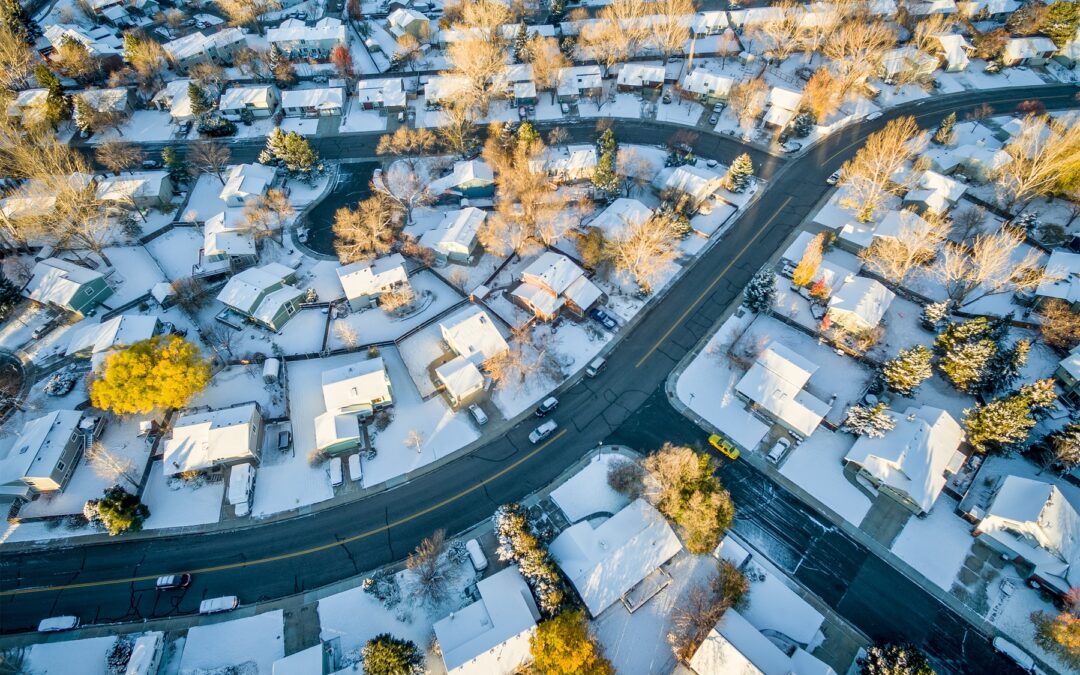There’s been no shortage of bad news in the past two years. From the pandemic to supply chain and labor shortages to inflations, there’s been plenty to be downbeat about. The housing market, however, has delivered good news. In fact, 2021 was a banner year for single-family home sales. Helped in no small measure by low interest rates, sellers commanded well over the asking prices with their properties spending less time on the market. The past year also saw the highest number of home sales in the past decade and a half. The question that remains is, will the housing market crash in 2022?
It’s very possible that mortgage interest rates will rise this year, there has been some movement in that direction already. Another sign of trouble is a potential housing shortage due to supply chain disruptions, labor shortages, and an overall increase in the cost of materials. Time will tell what 2022 will bring, but so far it’s been a seller’s market with housing going fast and with high sales prices.
Pandemic: Low Interest Rates
There’s no doubt that the uncertainty of the pandemic has led to the booming market. With many people stuck at home during the shutdown, spending money wasn’t an option. Going out to dinner and movies, and taking vacations was put on hold for much of 2020 so people were able to save more and put it towards a home purchase in 2021.
For those lucky enough to hang onto their jobs during this period, many saved up their money and used it to purchase new homes. There was also a desire to take advantage of the low interest rates. This created a high demand for housing which allowed sellers to command top dollar. Of course, sellers were happy to get that extra money, but more homeowners means more people paying property taxes, and communities across the country benefit from that.
It was because of all of these pandemic anxieties that the Fed kept interests as low as they have. This prompted many people to take advantage of those rates. The result is what will turn out to be the highest number of sales since 2006. If housing stock remains in limited supply, prices will stay high and days on the market low. As 2022 kicks off, we are still dealing with COVID-19 and its variants. That said, other factors are at play that could shake up the market in the coming months.
Housing Market Predictions for 2022
With mortgage rates low and a shortage of housing stock, homes are still going fast with offers coming in as soon as they’re listed. This has many REALTORS® predicting record-setting sales for 2022, perhaps the highest numbers we have seen since 2006. Others are more cautious predicting some growth but a slowdown over last year’s numbers. Either way, there’s reason to be optimistic as the year progresses.
One thing that seems fairly certain for this year: the shortage in housing stock is real. We’ve already seen signs of this throughout the country, but some regions will experience it worse than others. With inventory scarce, it will remain a seller’s market as the competition among buyers will increase. As the year progresses from quarter to quarter, the shortage will be felt more acutely.
Housing Shortage
With a housing supply at its lowest levels in over forty years, another year like 2021 will be tricky. According to the most recent numbers from the U.S. Census Bureau the third quarter of 2021 was down about 65 percent from the second quarter. This isn’t because people don’t want to buy or can’t afford to, they just face stiff competition and fewer options. One reason for the shortage is increased homeownership among Millennials.
Of course, the way out of a shortage is to increase the supply. Adding more housing stock would alleviate this problem, but that is easier said than done. With inflation pushing prices up and supply chain issues still causing disruptions, this is a challenge for developers. Those in a position to capitalize will do well, but whether it will be too little too late to stave off a crash in the housing market remains to be seen.
On the other hand, a strengthening job market is encouraging even as home values rise. More people returning to work should result in more people pursuing homeownership. This depends on mortgage rates staying low, however. The result will likely be a slow down in the rise of home values. In other words, prices will still trend upwards, but at a much slower rate as the year progresses.
Seeking Out Different Markets
One way would-be homebuyers will find affordable housing is by choosing to leave the city for the suburbs. Many employers did not require workers to return to the office once the shutdowns mandates were lifted, so there’s more freedom to live further from the workplace. This offers more affordable options than city living, not just in housing costs, but in cost of living expenses too. Some buyers may move to different metro areas even in different states to seek out a good deal on housing.
Will the Housing Market Crash in 2022?
When many people paint a rosy picture about record-setting sales numbers and unlimited potential for growth, for others that’s a time to start worrying. There is the real possibility of a crash in the real estate market. It could happen this year, or maybe next, but unchecked growth is unlikely. Once demand is satisfied, prices will come back down to earth. Even if new construction continues, it will be a while before it catches up to demand. Instead of a crash in 2022, we are more likely to see a cooling down period with the market going from red hot to cool. Cool is better than cold, for sure, especially if mortgage rates stay put, or don’t rise significantly.
The main takeaway from the third quarter numbers is that the hot streak continues to benefit both buyers and sellers in the U.S. The future is uncertain as the Omicron variant of COVID-19 is still impacting the country and interest rates won’t remain so low forever.
Main Takeaways
Not to put too fine a point on it, but 2021 was a good year for the real estate market, sellers especially. We expect growth to continue but at a slower rate than we saw last year. A housing shortage is an ongoing concern, so buyers need to be patient and also adjust their thinking. That means considering moving to a different market, if possible, or moving to the suburbs. Even minimal growth is dependent on no steep rises in mortgage rates. We’ve seen unexpected growth since the last crash in 2008. What’s different now is the demand for housing is not artificial, it’s real and it needs to be met with new housing stock.


Recent Comments